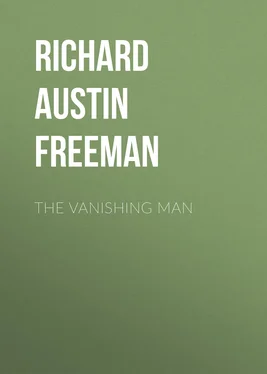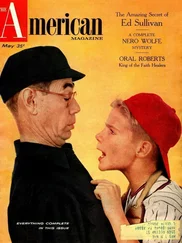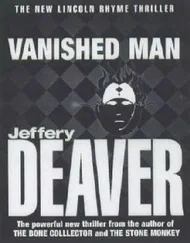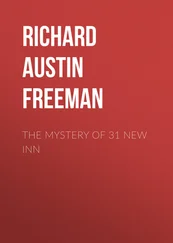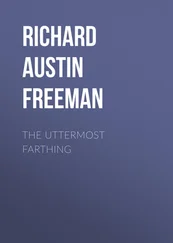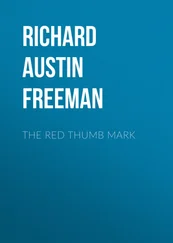Richard Austin Freeman - The Vanishing Man
Здесь есть возможность читать онлайн «Richard Austin Freeman - The Vanishing Man» — ознакомительный отрывок электронной книги совершенно бесплатно, а после прочтения отрывка купить полную версию. В некоторых случаях можно слушать аудио, скачать через торрент в формате fb2 и присутствует краткое содержание. Жанр: foreign_prose, Классический детектив, foreign_detective, foreign_antique, на английском языке. Описание произведения, (предисловие) а так же отзывы посетителей доступны на портале библиотеки ЛибКат.
- Название:The Vanishing Man
- Автор:
- Жанр:
- Год:неизвестен
- ISBN:нет данных
- Рейтинг книги:3 / 5. Голосов: 1
-
Избранное:Добавить в избранное
- Отзывы:
-
Ваша оценка:
- 60
- 1
- 2
- 3
- 4
- 5
The Vanishing Man: краткое содержание, описание и аннотация
Предлагаем к чтению аннотацию, описание, краткое содержание или предисловие (зависит от того, что написал сам автор книги «The Vanishing Man»). Если вы не нашли необходимую информацию о книге — напишите в комментариях, мы постараемся отыскать её.
The Vanishing Man — читать онлайн ознакомительный отрывок
Ниже представлен текст книги, разбитый по страницам. Система сохранения места последней прочитанной страницы, позволяет с удобством читать онлайн бесплатно книгу «The Vanishing Man», без необходимости каждый раз заново искать на чём Вы остановились. Поставьте закладку, и сможете в любой момент перейти на страницу, на которой закончили чтение.
Интервал:
Закладка:
Now all this was changed. As we sat with our chairs creaking together and she whispered the story of those stirring times into my receptive ear—talking is strictly forbidden in the reading-room—the disjointed fragments arranged themselves into a romance of supreme fascination. Egyptian, Babylonian, Aramaean, Hittite, Memphis, Babylon, Hamath, Megiddo—I swallowed them all thankfully, wrote them down and asked for more. Only once did I disgrace myself. An elderly clergyman of ascetic and acidulous aspect had passed us with a glance of evident disapproval, clearly setting us down as intruding philanderers; and when I contrasted the parson's probable conception of the whispered communications that were being poured into my ear so tenderly and confidentially with the dry reality, I chuckled aloud. But my fair task-mistress only paused, with her finger on the page, smilingly to rebuke me, and then went on with the dictation. She was certainly a Tartar for work.
It was a proud moment for me when, in response to my interrogative "Yes?" my companion said "That is all" and closed the book. We had extracted the pith and marrow of six considerable volumes in two hours and a half.
"You have been better than your word," she said. "It would have taken me two full days of really hard work to make the notes that you have written down since we commenced. I don't know how to thank you."
"There's no need to. I've enjoyed myself and polished up my shorthand. What is the next thing? We shall want some books for to-morrow, shan't we?"
"Yes. I have made out a list, so if you will come with me to the catalogue desk I will look out the numbers and ask you to write the tickets."
The selection of a fresh batch of authorities occupied us for another quarter of an hour, and then, having handed in the volumes that we had squeezed dry, we took our way out of the reading-room.
"Which way shall we go?" she asked as we passed out of the gate, where stood a massive policeman, like the guardian angel at the gate of Paradise (only, thank Heaven! he bore no flaming sword forbidding reentry).
"We are going," I replied, "to Museum Street, where is a milkshop in which one can get an excellent cup of tea."
She looked as if she would have demurred, but eventually followed obediently, and we were soon seated side by side at a little marble-topped table, retracing the ground that we had covered in the afternoon's work and discussing various points of interest over a joint teapot.
"Have you been doing this sort of work long?" I asked as she handed me my second cup of tea.
"Professionally," she answered, "only about two years; since we broke up our home, in fact. But long before that I used to come to the Museum with my Uncle John—the one who disappeared, you know, in that dreadfully mysterious way—and help him to look up references. We were quite good friends, he and I."
"I suppose he was a very learned man?" I suggested.
"Yes, in a certain way; in the way of the better-class collector he was very learned indeed. He knew the contents of every museum in the world, in so far as they were connected with Egyptian antiquities, and had studied them specimen by specimen. Consequently, as Egyptology is largely a museum science, he was a learned Egyptologist. But his real interest was in things rather than events. Of course, he knew a great deal—a very great deal—about Egyptian history, but still he was, before all, a collector."
"And what will happen to his collection if he is really dead?"
"The greater part of it goes to the British Museum by his will, and the remainder he has left to his solicitor, Mr. Jellicoe."
"To Mr. Jellicoe! Why, what will Mr. Jellicoe do with Egyptian antiquities?"
"Oh, he is an Egyptologist, too, and quite an enthusiast. He has a really fine collection of scarabs and other small objects such as it is possible to keep in a private house. I have always thought that it was his enthusiasm for everything Egyptian that brought him and my uncle together on terms of such intimacy; though I believe he is an excellent lawyer, and he is certainly a very discreet, cautious man."
"Is he? I shouldn't have thought so, judging by your uncle's will."
"Oh, but that was not Mr. Jellicoe's fault. He assures us that he entreated my uncle to let him draw up a fresh document with more reasonable provisions. But he says Uncle John was immovable; and he really was a rather obstinate man. Mr. Jellicoe repudiates any responsibility in the matter. He washes his hands of the whole affair, and says that it is the will of a lunatic. And so it is. I was glancing through it only a night or two ago, and really I cannot conceive how a sane man could have written such nonsense."
"You have a copy, then?" I asked eagerly, remembering Thorndyke's parting instructions.
"Yes. Would you like to see it? I know my father has told you about it, and it is worth reading as a curiosity of perverseness."
"I should very much like to show it to my friend, Doctor Thorndyke," I replied. "He said that he would be interested to read it and learn the exact provisions; and it might be well to let him, and hear what he has to say about it."
"I see no objection," she rejoined; "but you know what my father is: his horror, I mean, of what he calls 'cadging for advice gratis.'"
"Oh, but he need have no scruples on that score. Doctor Thorndyke wants to see the will because the case interests him. He is an enthusiast, you know, and he put the request as a personal favour to himself."
"That is very nice and delicate of him, and I will explain the position to my father. If he is willing for Doctor Thorndyke to see the copy, I will send or bring it over this evening. Have we finished?"
I regretfully admitted that we had, and, when I had paid the modest reckoning, we sallied forth, turning back with one accord into Great Russell Street to avoid the noise and bustle of the larger thoroughfare.
"What sort of man was your uncle?" I asked presently, as we walked along the quiet, dignified street. And then I added hastily: "I hope you don't think me inquisitive, but, to my mind, he presents himself as a kind of mysterious abstraction; the unknown quantity of a legal problem."
"My Uncle John," she answered reflectively, "was a very peculiar man, rather obstinate, very self-willed, what people call 'masterful,' and decidedly wrong-headed and unreasonable."
"That is certainly the impression that the terms of his will convey," I said.
"Yes; and not the will only. There was the absurd allowance that he made my father. That was a ridiculous arrangement, and very unfair, too. He ought to have divided up the property as my grandfather intended. And yet he was by no means ungenerous, only he would have his own way, and his own way was very commonly the wrong way.
"I remember," she continued, after a short pause, "a very odd instance of his wrong-headedness and obstinacy. It was a small matter, but very typical of him. He had in his collection a beautiful little ring of the eighteenth dynasty. It was said to have belonged to Queen Ti, the mother of our friend Amenhotep the Fourth; but I don't think that could have been so, because the device on it was the Eye of Osiris, and Ti, as you know, was an Aten-worshipper. However, it was a very charming ring, and Uncle John, who had a queer sort of devotion to the mystical Eye of Osiris, commissioned a very clever goldsmith to make two exact copies of it, one for himself and one for me. The goldsmith naturally wanted to take the measurements of our fingers, but this Uncle John would not hear of; the rings were to be exact copies, and an exact copy must be the same size as the original. You can imagine the result; my ring was so loose that I couldn't keep it on my finger, and Uncle John's was so tight that, though he did manage to get it on, he was never able to get it off again. And it was only the circumstance that his left hand was decidedly smaller than his right that made it possible for him to wear it at all."
Читать дальшеИнтервал:
Закладка:
Похожие книги на «The Vanishing Man»
Представляем Вашему вниманию похожие книги на «The Vanishing Man» списком для выбора. Мы отобрали схожую по названию и смыслу литературу в надежде предоставить читателям больше вариантов отыскать новые, интересные, ещё непрочитанные произведения.
Обсуждение, отзывы о книге «The Vanishing Man» и просто собственные мнения читателей. Оставьте ваши комментарии, напишите, что Вы думаете о произведении, его смысле или главных героях. Укажите что конкретно понравилось, а что нет, и почему Вы так считаете.
